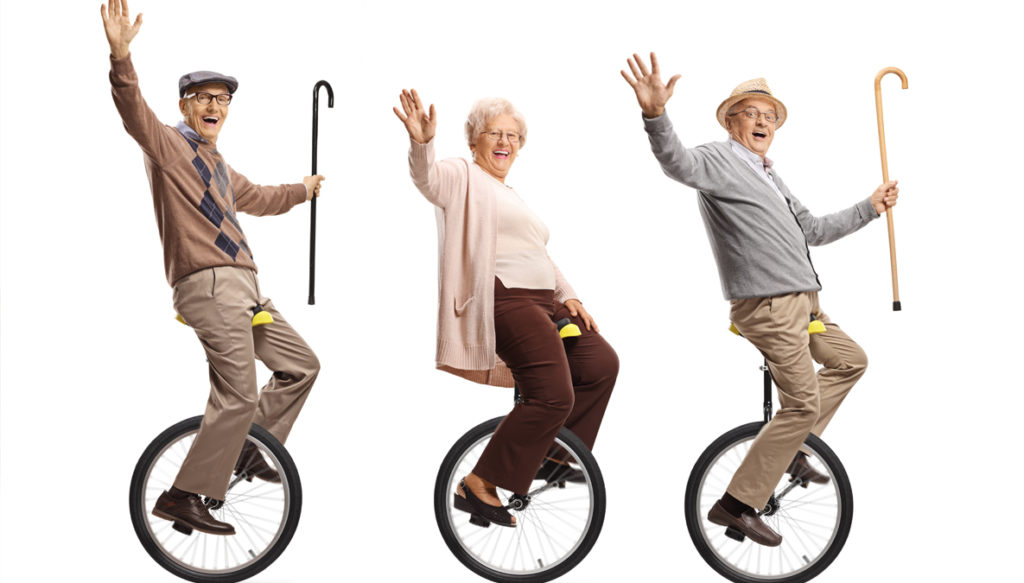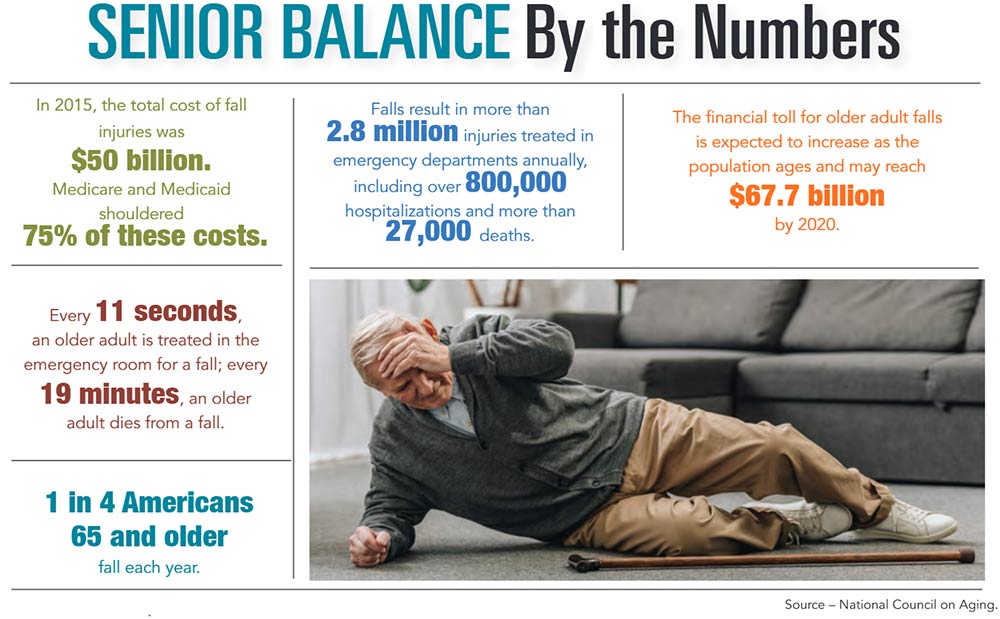Know Your Risks Beforehand and Be Proactive with Your Health to Effectively Manage Your Health Care Needs.
Losing balance as we age is something that most of us accept as inevitable. Dizzy spells, reaching out to steady your balance on a countertop or second thoughts about going for a walk with the grandchildren all are understandable concerns.
But it doesn’t have to be this way. A common misconception is that balance declines as we age, which is only partially true. The reason more than 1 in 3 people 65 or older fall every year is due to a lack of practice and misuse of the systems in the body that contribute to balance. The good news is you are much more in control of improving your balance than you might think.
“Just because you’re aging doesn’t mean you’re going to have a fall,” said Laurie Woods, a physical therapist at the Medical University of South Carolina with 23 years of experience helping patients of all ages. “Balance is actually made up of the communication of information from the eyes, inner ears, joints and muscles. When all three systems are working well, you’re well-balanced.”
This indicates that if you are experiencing issues with losing your balance or perhaps feeling light-headed in situations where you’d normally feel in control, it’s time to schedule a visit to your doctor or a physical therapist.
“A lot of my patients say they didn’t realize a checkup could be this simple, and if they had known they would have come in long ago. They go to the doctor for simple checkups, but they should visit a physical therapist when something feels off, too,” said Woods.
But what does the process look like? Is it really possible to go from feeling unsteady to regaining that confident spring in your step?
“We narrow it down through the process of elimination. I’ll have my patients go through a few simple tests, and we can tell very quickly what the problem is. It could be something as simple as a calf weakness,” Woods explained.
What if you don’t want to go through the lengthy process of having a doctor diagnose you with an issue before seeing a physical therapist? In South Carolina, you can see a physical therapist for up to 30 days without a doctor’s intervention.
Jordan Cuenin, PT, DPT, clinic manager at CORA PT in Easley, South Carolina, said, “Knowing your risks beforehand, developing a regimented exercise program and making slight modifications to your home can help prevent and protect you and your loved ones. Being proactive with your health is a much more cost-effective and preventive way to manage your health care needs.”
If a fall can literally be a matter of life or death, it’s imperative to continue to routinely visit the doctor and take steps on your own to ensure that you can stay active safely in your later years. For example, a simple fall can be devastating, causing a fractured hip, pelvis or spine. These events can lead to lowered quality of life, a visit to the hospital and even death.
Cuenin said, “A fear of falling is common among individuals who have experienced a similar event. This phobia can be debilitating as it can limit one’s motivation to participate in activities, including attendance at social events. Not only is the fear of falling real, but experiencing a fall also increases your chances of falling again twofold.”
Yoga, which is becoming more and more popular, is a great way not only to increase balance but increase strength and mobility as well – not to mention the psychological benefits of deep breathing and meditation that come along with consistent practice.
As in many situations, the solution to an issue with balance is mostly straightforward. Increasing your daily movement in a gradual but challenging way is the key. Moving away from a sedentary lifestyle has immense benefits for everyone, and it’s perhaps even more important as we age.
“Keep moving. All too often, I see regular activity become less frequent as people age and retire, leading to deconditioning in all areas of health,” Cuenin reiterated.
As one of the three systems we use for balance begins to deteriorate, we often compensate by relying too heavily on the other systems. For instance, someone with inner ear issues may rely more on their eyes.
“I’ve met many patients — one in particular who was in her 90s. She wasn’t feeling herself and had true vertigo. It was a matter of a few simple tests and maneuvers and it got much better,” said Woods.
A therapist will pursue a variety of options in these cases, ranging from exercises to increase function of the inner ear to learning a specific exercise or balance activity directed at the patient’s impairment.
“The thing I want people to take away is that if you’re not feeling like yourself, don’t just assume it’s because of your age. You have options,” Woods encouraged. “I can’t tell you how many patients I’ve seen who later told me things like their walking speed increased or their posture got better and, perhaps the most notable, is people began commenting on how much younger they felt.”
To speak to a CORA Therapist, please visit our Easley, SC location or call the clinic directly at (864) 606-0408.
Article as originally published by James Crawford, UpstatePhysiciansSC.com


